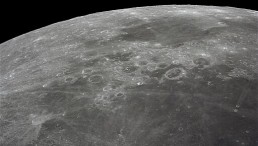Researchers have published a study in Nature which revealed that the Introductions of alien birds are most successful in climates and locations similar to their native habitats and in places where other alien species are already established.
As essential as this discovery is, it is for understanding the processes that help or hinder species moving between locations and the next steps for predicting and limiting the threat of future biological invasions.
With the activity of the human reshaping the world, alien species are becoming more of an issue through their negative impacts such as agricultural damage, the spread of disease, and expensive damage to infrastructure.
Also, the alien species are impacting on native species with an estimated third of animals extinctions globally and a quarter of plant extinction since 1500 thought to be driven in part by alien species.
First author of the study and UCL Genetics, Evolution & Environment, Dr. David Redding, explained that they know alien species are the primary driver of recent extinctions in both animals and plants, so there is a clear and urgent need for better biosecurity measures to prevent or mitigate the impact of future invasions and protect endangered native species.
Explaining further, Dr. Redding noted that with increased worldwide trade, more species are being transported around the world either purposefully or as stowaways, which creates more opportunities for alien species to establish themselves in new habitats.
The collaborative efforts of researchers from UCL, ZSL, the University of Utah, Koc University, and the University of Queensland used bords as a model system for other wildlife. They analyzed 4,346 global invasion events spanning 708 species to see which factors enabled the birds to thrive in their new habitat.
Their findings suggested that alien species are more likely to settle if the local environment is similar to their home habitat, and has few extreme weather events: big storms can wipe out alien and native population alike. Also, birds are more likely to prosper where other alien species are flourishing which can lead to an accumulative of alien species in 'hotspots.'
Professor Blackburn explained that the worry is the past aliens pave the way for new ones which can lead to 'invasional meltdown.' There is a need for internationally agreed management plans to detect stowaway species at entry points such as ports and must be much careful about which species are purposefully introduced to a new area. The investigators recommended biosecurity measure to be taken in hotspot areas as a priority to prevent further introduction of alien species and protect local wildlife.













![Earth's Quasi-Moon Kamo‘oalewa Could Originate From Lunar Surface Not Asteroid Belt [Study]](https://1721181113.rsc.cdn77.org/data/thumbs/full/53275/258/146/50/40/earths-quasi-moon-kamo-oalewa-could-originate-from-lunar-surface-not-asteroid-belt-study.png)
